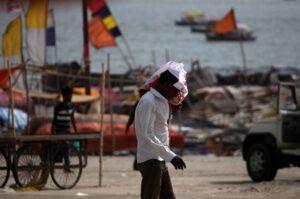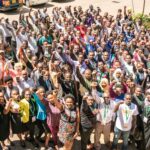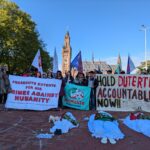Women working in India’s garment factories face exploitation, wage theft, and abuse. Learn how community activists in Karnataka State are helping them organize and demand their rights.
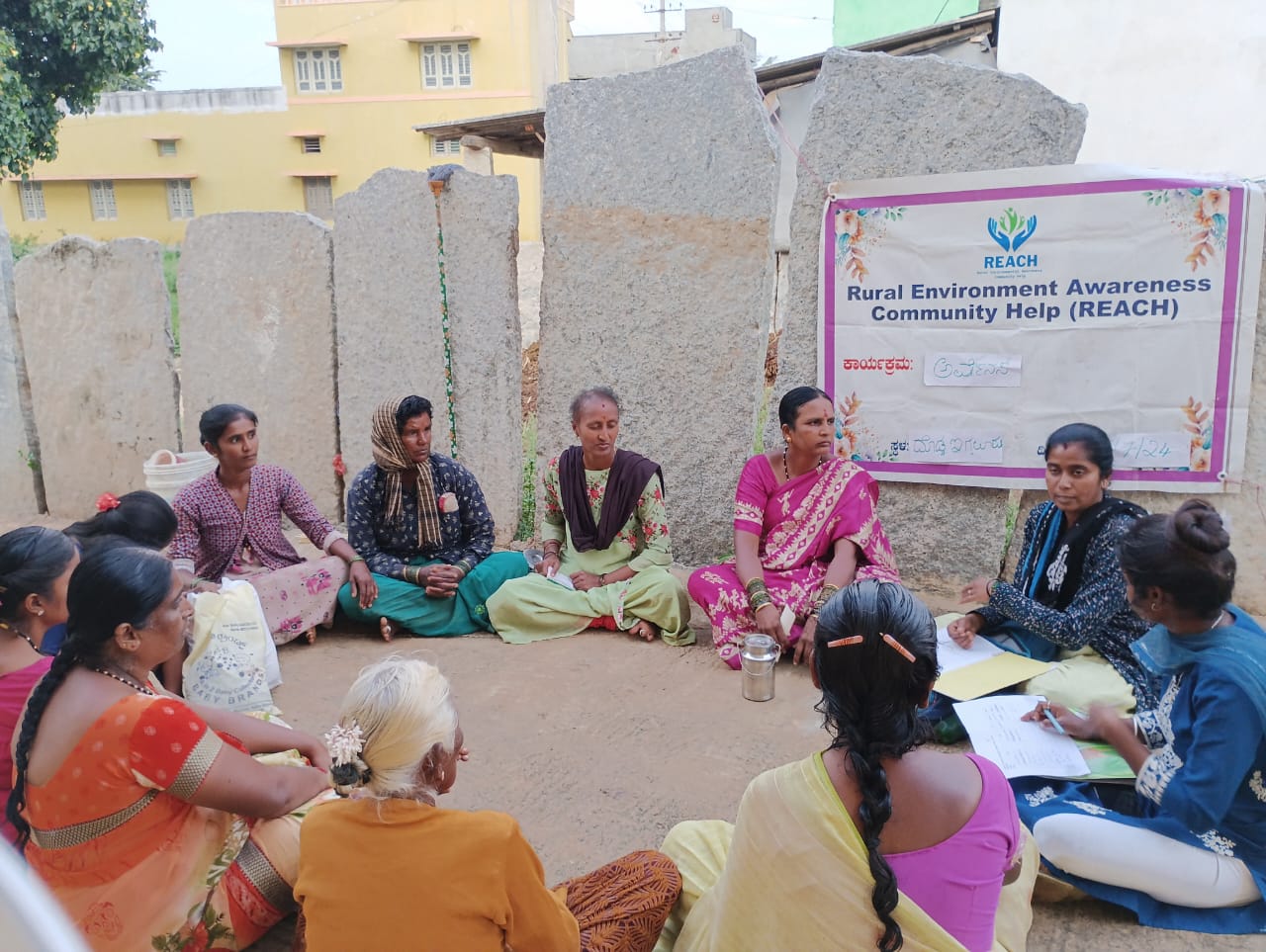
In June 2024, 15-year-old Mansur should have been starting ninth grade. But one after another, schools turned him away on account of poor grades. Dejected, he saw no hope of continuing his education.
Instead, Mansur found work alongside his mother, earning just 120 rupees ($1.37) a day in one of the many textile factories that make Karnataka State a hub for India’s massive garment industry. That’s how they met Lakshmi.
Lakshmi is a community activist with the organization Rural Environment Awareness Community Help (REACH), which helps rural garment workers—around 90 percent of whom are women—understand their rights and organize to overcome injustice in their factories, schools, or wherever they may arise.
Rights violations are so common across India’s garment industry that unsafe working conditions, wage theft, and widespread sexual harassment are rarely even reported. Workers receive little to no information about labor rights, policies, or entitlements. And entrenched issues of gender, caste, and class mean that exploitative or discriminatory practices often go unchallenged.
With financial and strategic support from the Fund for Global Human Rights (FGHR), REACH has led a program over the past two years to develop leadership among women garment workers in rural Karnataka. But their approach didn’t start with workshops. They began by building trust.
Coordinators from REACH were initially met with wary skepticism by rural workers with limited access to information about their rights, who feared that organizing and speaking out would be met with retaliation by their employers. Flexible support from FGHR gave activists from REACH the time to listen to the workers’ concerns, develop relationships, and build rapport—even going door-to-door in some communities.
As they earned the communities’ trust, activists from REACH worked closely with women working in Karnataka’s garment factories to understand their challenges and design a community-led program that builds leadership, agency, and solidarity. Many of the women who take part in REACH’s workshops report that this is the first time they have received information about human rights or fair labor. But through deep discussion and trainings, they are learning how to lead the charge for change.
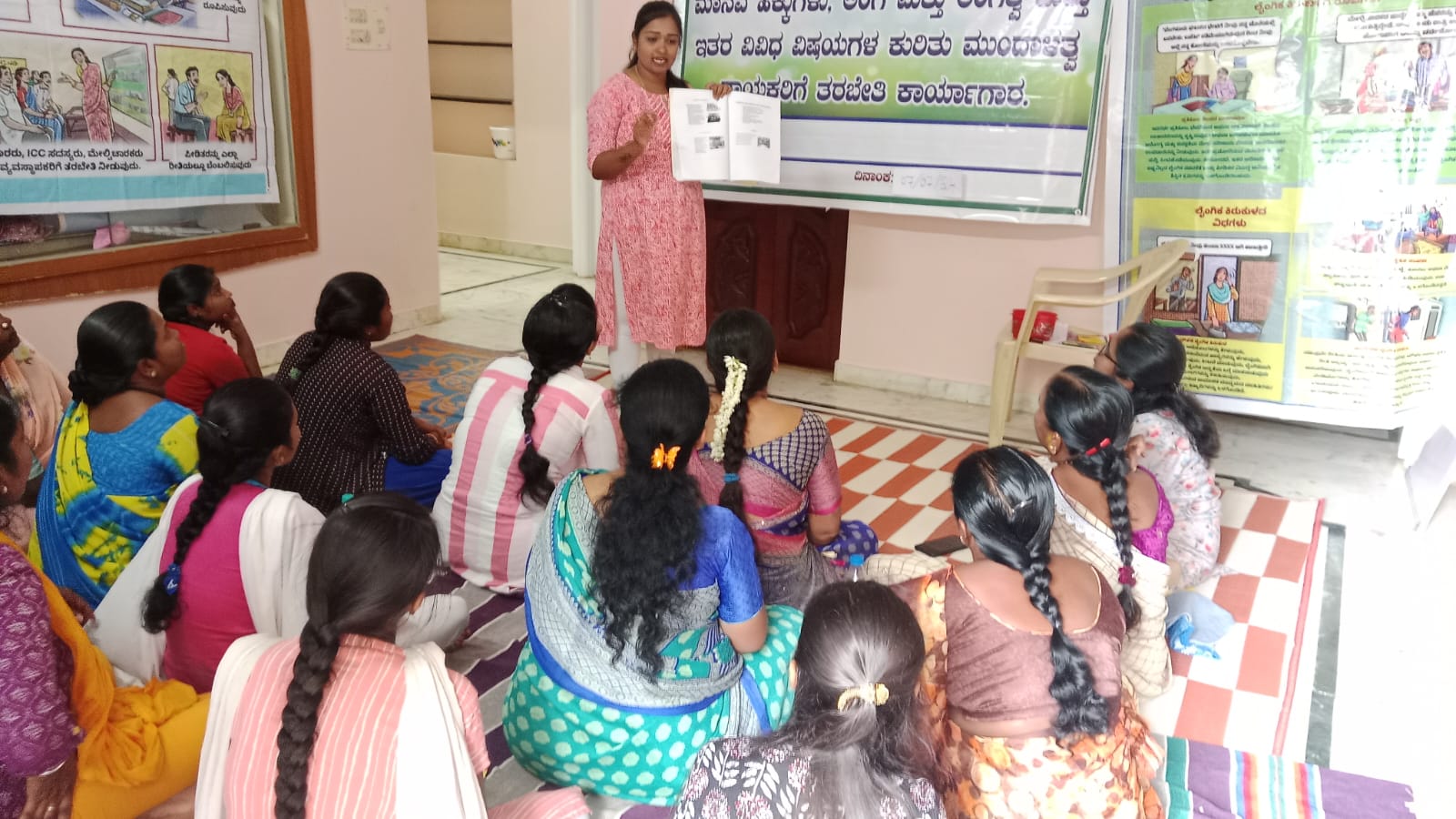
From Workshops to Workers’ Power
Varalakshmi has worked in the garment industry for more than a decade. But until she took part in REACH’s program, she had received little information about her rights or entitlements as a worker. Through the training, she not only learned how to withdraw money from her Employees’ Provident Fund—India’s government-backed retirement savings scheme—but noticed some concerning discrepancies in her balance. She brought the issue to factory management, successfully negotiating to return the missing funds to her account.
“I worked for years without knowing I was missing what was rightfully mine,” says Varalakshmi. Beyond reclaiming her money, she was motivated by her newfound confidence to aid her fellow workers. Since then, Varalakshmi has attended more REACH sessions and helped other women workers navigate similar issues, supporting them through negotiations with factory management and local government.
“Thanks to Sushma [from REACH], I now not only understand my rights but also help other women secure theirs,” she says. “It feels powerful to be able to help.”
Varalakshmi is just one of hundreds of women who are now equipped to organize and lead local movements for justice in Karnataka. To date, nearly 415 workers have completed REACH’s program, and more than 410 are still taking part in sessions. By fostering not only individual leadership but collective power and solidarity, REACH is helping garment workers mobilize movements—and developing their abilities to support others in their community.
This includes Mansur’s mother. With support from REACH, she and Mansur connected with India’s child helpline—a free, 24-hour phone service for children in need of assistance. Activists from REACH also met with district and school authorities. Mansur was admitted to school the same day.
She didn’t stop there. She continued to advocate with school officials to ensure her daughter could also access education. Thanks to her efforts, Mansur’s sister is completing a pre-university course. And earlier this year, Mansur passed his tenth-grade exams and enrolled at a municipal college.
Ending Exploitation in the Garment Industry
Across India and around the world, millions of families like Mansur’s continue to be denied their rights. Today, most of the world’s clothing comes from Asia’s sprawling informal sector, where poorly enforced regulations make garment workers particularly vulnerable to exploitation both by multinational corporations and local employers. Women, young people, and other marginalized communities who depend on this kind of informal work must navigate compounding rights violations and structural barriers just to earn a living.
But despite the odds, garment workers and their families are mobilizing to demand their rights: fair labor, safe workplaces, and access to opportunity. To resource this work, funders need to be prepared to meet labor rights activists where they are—with the long-term flexible funding and strategic support they need to build collective power and organize effectively within workplaces and communities.
Equipped with the knowledge and tools to use their rights, every worker can be part of the global movement for change.
Sign up to our newsletter
Add some impact to your inbox.
By submitting this form, you accept that your data will be stored and processed in line with our Privacy Policy.
